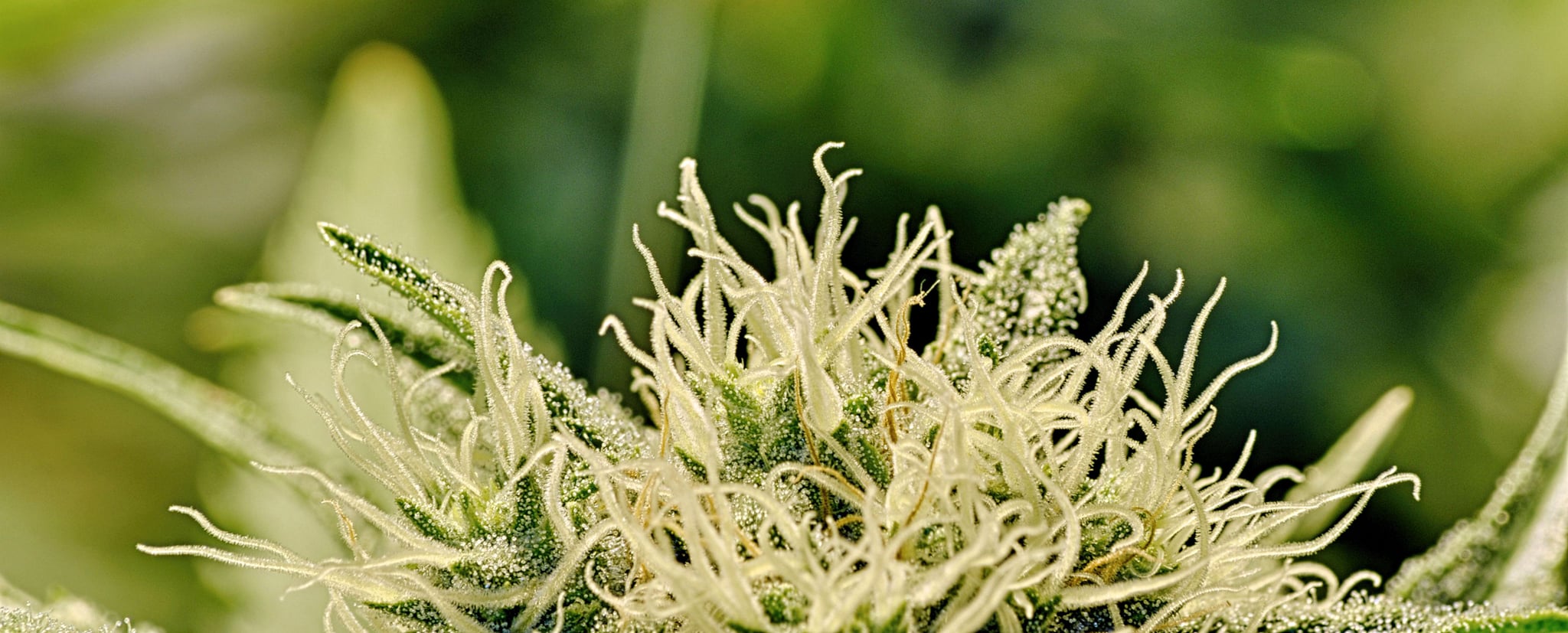
Image Source:
Flickr user DonGoofy
Women Leaders in the Cannabis Industry
5 Women Who Could Be Crowned Queens of the Cannabis Industry
Cannabis, the perennial currency of counterculture cool, is quickly becoming America’s next cash crop. It would be already if it weren’t for federal prohibition, thanks to its many applications: the plant can produce plastic, treat a bevy of medical issues, and, of course, illicit a heady high.
For decades Mary Jane smokers have acquired quite a few tropes to describe its so-called community: the hippy, the stoner, the radical, the artist, or the criminal. Critics of cannabis have often employed these stereotypes negatively or to suggest a reason for prohibition — but reality belies these Nixon-era labels.
Though moms, professionals, and lawmakers are rarely associated with cannabis use, recreational legalization has begun to dissolve the image of a traditional marijuana smoker. Even politicians have aligned themselves with the push for full legalization. As President Barack Obama left office, he told Rolling Stone's Jann S. Wenner he believes marijuana should be treated like cigarettes or alcohol. Senator Bernie Sanders has also been a longtime champion of legalization. In 2016 alone, the legal industry raked in over $7 billion — who wouldn’t want a cut?
Considering the $50 billion it’s projected to earn yearly by the end of this decade plus the 250,000 jobs it’s forecasted to create, cannabis is clearly America’s fastest-growing industry. While the last vestiges of a failed War on Drugs continue to demonstrate a dogged misunderstanding of cannabis, the industry will continue to expand — and prove its federal legal inevitability along the way.
Because it’s relatively nascent compared to other sectors, the cannabis industry is also unique in its leadership: many of its pioneers are women, and they are shaping an entirely new brand of company culture. They are multitaskers (gasp), they work around the clock, they are nurturing, and they sometimes have no experience in cannabis — but they are commanding the industry's growth.
Like other sectors, cannabis necessitates varying roles: there are cultivators, dispensary operators, branding specialists, and financial folks who collectively deliver a product you want to consume. POPSUGAR spoke with five women who are leaders in their space — but more aptly, they are the burgeoning queens of an industry with an opportune future.
For decades Mary Jane smokers have acquired quite a few tropes to describe its so-called community: the hippy, the stoner, the radical, the artist, or the criminal. Critics of cannabis have often employed these stereotypes negatively or to suggest a reason for prohibition — but reality belies these Nixon-era labels.
Though moms, professionals, and lawmakers are rarely associated with cannabis use, recreational legalization has begun to dissolve the image of a traditional marijuana smoker. Even politicians have aligned themselves with the push for full legalization. As President Barack Obama left office, he told Rolling Stone's Jann S. Wenner he believes marijuana should be treated like cigarettes or alcohol. Senator Bernie Sanders has also been a longtime champion of legalization. In 2016 alone, the legal industry raked in over $7 billion — who wouldn’t want a cut?
Considering the $50 billion it’s projected to earn yearly by the end of this decade plus the 250,000 jobs it’s forecasted to create, cannabis is clearly America’s fastest-growing industry. While the last vestiges of a failed War on Drugs continue to demonstrate a dogged misunderstanding of cannabis, the industry will continue to expand — and prove its federal legal inevitability along the way.
Because it’s relatively nascent compared to other sectors, the cannabis industry is also unique in its leadership: many of its pioneers are women, and they are shaping an entirely new brand of company culture. They are multitaskers (gasp), they work around the clock, they are nurturing, and they sometimes have no experience in cannabis — but they are commanding the industry's growth.
Like other sectors, cannabis necessitates varying roles: there are cultivators, dispensary operators, branding specialists, and financial folks who collectively deliver a product you want to consume. POPSUGAR spoke with five women who are leaders in their space — but more aptly, they are the burgeoning queens of an industry with an opportune future.
Jane West, founder of Women Grow and CEO of Jane West
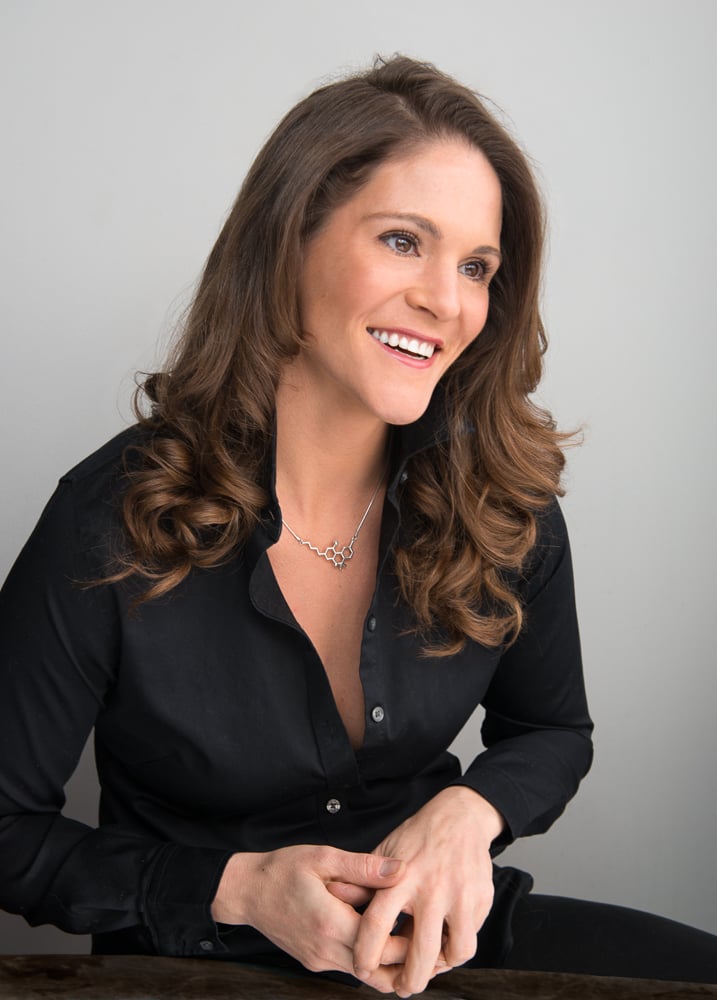
Image Source:
Roese Photography
Jane West will become your best friend within five minutes of speaking with her. She’s also one of the most influential women in the cannabis industry. When we first spoke over the phone, West was juggling about a dozen to-do’s in preparation for the cannabis industry’s most celebrated holiday: 4/20. But you would never know how busy the mother of two was, mostly because of how collected she is. She’s chill.
When she was still working a corporate event planning job, West launched her first marijuana venture: Edible Events Co. Hosting marijuana dinner pairing parties in Denver, West’s side job took off in 2014. But after her boss saw her vape during a segment about the company on CNBC, West was let go, which, although disappointing, allowed her to focus full-time on Edible Events.
Like her peers in the industry, West quickly realized how the industry’s growth required her to wear multiple hats. West founded Women Grow, a network of women in the cannabis industry, whose purpose is to educate, empower, and inspire women both within the industry and those who might be interested in joining the movement. While her role has transitioned since she founded the organization in 2014, West is still heavily involved.
When she was still working a corporate event planning job, West launched her first marijuana venture: Edible Events Co. Hosting marijuana dinner pairing parties in Denver, West’s side job took off in 2014. But after her boss saw her vape during a segment about the company on CNBC, West was let go, which, although disappointing, allowed her to focus full-time on Edible Events.
Like her peers in the industry, West quickly realized how the industry’s growth required her to wear multiple hats. West founded Women Grow, a network of women in the cannabis industry, whose purpose is to educate, empower, and inspire women both within the industry and those who might be interested in joining the movement. While her role has transitioned since she founded the organization in 2014, West is still heavily involved.
“If you’re not drinking three or four times a week, that’s a bootcamp class.”
West is both candid and professional. She thinks that cannabis consumption could rival, if not replace, alcohol — mostly, she argues, because of the calories and the lack of a hangover. “This stuff sells itself: you have a positive experience, you’re not hungover the next morning, and now we’re finding that we just don’t know the true caloric damage alcohol does,” West gleefully explained. “If you’re not drinking three or four times a week, that’s a bootcamp class.”
Now the owner of a third eponymous brand, Jane West, West has certainly positioned herself as a key player in the industry. She has her own line of smoking accessories and a web series where she reviews products and showcases her charismatic personality. West's innovation is fueled by her passion for reeducating Americans about cannabis's restorative properties, but she's just as motivated to cultivate an industry where sexism is scant. West's opinion about women in the marijuana industry is best illustrated by her own words below.
Now the owner of a third eponymous brand, Jane West, West has certainly positioned herself as a key player in the industry. She has her own line of smoking accessories and a web series where she reviews products and showcases her charismatic personality. West's innovation is fueled by her passion for reeducating Americans about cannabis's restorative properties, but she's just as motivated to cultivate an industry where sexism is scant. West's opinion about women in the marijuana industry is best illustrated by her own words below.
PS: How important of a role do women play in rebranding cannabis's image?
JW: As moms, women are making 85 percent of consumer goods purchases for households. We are also the “chief medical officers” of our households. How different mothers handle their children’s colds varies from what you have around your house. We’re really the ones that are going to be deciding where, how, and in what form we start incorporating cannabis into our lives. So we’re really the best people suited to create those products. This isn’t going to happen again. The legalization, monetization, regulation, and taxation of this product is going to affect more areas of our lives than anything since the internet. This is going to change the way society looks.
JW: As moms, women are making 85 percent of consumer goods purchases for households. We are also the “chief medical officers” of our households. How different mothers handle their children’s colds varies from what you have around your house. We’re really the ones that are going to be deciding where, how, and in what form we start incorporating cannabis into our lives. So we’re really the best people suited to create those products. This isn’t going to happen again. The legalization, monetization, regulation, and taxation of this product is going to affect more areas of our lives than anything since the internet. This is going to change the way society looks.
PS: As a woman who owns her own business in a new industry, do you encounter a lot of sexism that is pervasive in other industries?
JW: I don’t think it’s anything different, necessarily, that women are experiencing here than in other major sectors. People with more diverse work backgrounds are walking into this with American corporate-culture mentality. But we have an opportunity [in the cannabis industry] to change the way that looks because there is such rapid growth. I do think that women in the industry have made their voices heard.
JW: I don’t think it’s anything different, necessarily, that women are experiencing here than in other major sectors. People with more diverse work backgrounds are walking into this with American corporate-culture mentality. But we have an opportunity [in the cannabis industry] to change the way that looks because there is such rapid growth. I do think that women in the industry have made their voices heard.
PS: How do you think cannabis can help alleviate a nationwide dependence on pharmaceuticals, particularly with regard to the opioid epidemic?
JW: We know it does from the data. In the states where it’s legal, there are fewer opiate deaths. Right now, women in my demographic between the ages of 35 and 55 take more mind-altering drugs [antidepressants and anxiety medications] on a daily basis than any other group of Americans. Personally, as I started using cannabis more and more, I realized how much my alcohol consumption was affecting my overall health and well-being.
JW: We know it does from the data. In the states where it’s legal, there are fewer opiate deaths. Right now, women in my demographic between the ages of 35 and 55 take more mind-altering drugs [antidepressants and anxiety medications] on a daily basis than any other group of Americans. Personally, as I started using cannabis more and more, I realized how much my alcohol consumption was affecting my overall health and well-being.
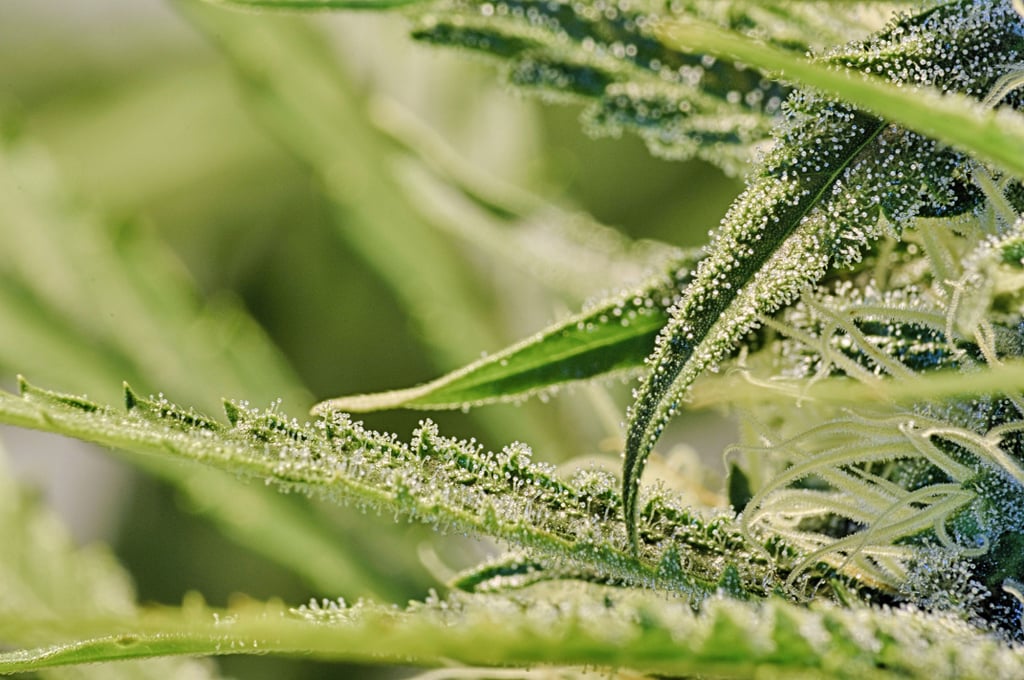
Aurora Leveroni — known as Nonna Marijuana — has perfected the art of cannabis cooking.
Jaime Lewis, CEO and founder of Mountain Medicine
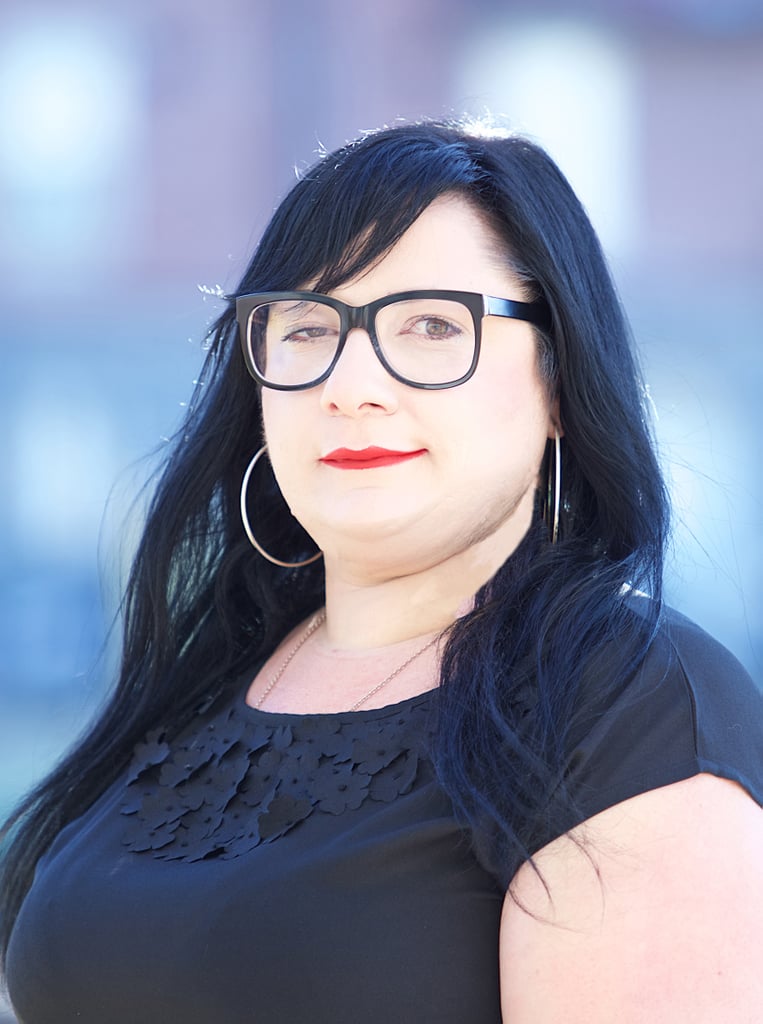
Image Source:
Mountain Medicine
You might call Jaime Lewis the cannabis industry’s fairy godmother. Lewis has been in the business for over a decade and she left behind a hugely successful career as a San Francisco chef when she started her own brand of edibles. Lewis’s motivations for making a slight career pivot are far from fiscal: lauding cannabis’s medicinal value, Lewis started concocting edibles for HIV patients who were unable to ingest any other way.
Following a move to Denver, Lewis launched Mountain Medicine, a cannabis infused edible product manufacturer, in 2009. Nearly 10 years and 120 Colorado locations later, Lewis operates one of the largest dispensary networks in the region. She’s currently venturing into the Massachusetts market and splits her time between Boston and Denver.
Lewis also chairs the Cannabis Business Alliance and sits on the board of lobbying group the National Cannabis Industry Association. Education is vital, in Lewis’s opinion, across the industry and outside its community to end federal prohibition.
When asked about how she takes on cannabis critics and downright doubters, Lewis said she has a go-to line of thought. “The best way to convince people is information,” Lewis told me over the phone. “I always start my speeches with comparing weed to alcohol. It’s nontoxic.”
Lewis added compellingly, “I think we all have anecdotes of people who may have gone to far but more anecdotes of people cannabis has saved.” Her point is backed by data: very rare cases of overdose have occurred while there are approximately 80,000 alcohol-related deaths in the United States annually.
Following a move to Denver, Lewis launched Mountain Medicine, a cannabis infused edible product manufacturer, in 2009. Nearly 10 years and 120 Colorado locations later, Lewis operates one of the largest dispensary networks in the region. She’s currently venturing into the Massachusetts market and splits her time between Boston and Denver.
Lewis also chairs the Cannabis Business Alliance and sits on the board of lobbying group the National Cannabis Industry Association. Education is vital, in Lewis’s opinion, across the industry and outside its community to end federal prohibition.
When asked about how she takes on cannabis critics and downright doubters, Lewis said she has a go-to line of thought. “The best way to convince people is information,” Lewis told me over the phone. “I always start my speeches with comparing weed to alcohol. It’s nontoxic.”
Lewis added compellingly, “I think we all have anecdotes of people who may have gone to far but more anecdotes of people cannabis has saved.” Her point is backed by data: very rare cases of overdose have occurred while there are approximately 80,000 alcohol-related deaths in the United States annually.
Throughout our conversation, a recurring theme is compassion. From competitors to co-workers, Lewis described a community which applauds others' success and encourages partnership, especially among women. “There’s a sense we’re all in this together,” Lewis said of her peers. As an activist, one of Lewis’s many roles in the industry, she has a confident attitude that is reflected by how much lobbying has grown since she entered the industry. It’s truly astounding: in the past five years, the number of participants at lobbying day has grown from 10 people to 60, Lewis estimated.
Lewis is not spooked by Attorney General Jeff Sessions’s threats to the recreational industry. “I would not have gotten as far as I did in this industry with fear,” Lewis said optimistically. “I was in cannabis during the Bush years.”
"I would not have gotten as far as I did in this industry with fear. I was in cannabis during the Bush years.”
Dr. Lakisha Jenkins, founder of the Jenasis Medical Group and California Cannabis Industry Association
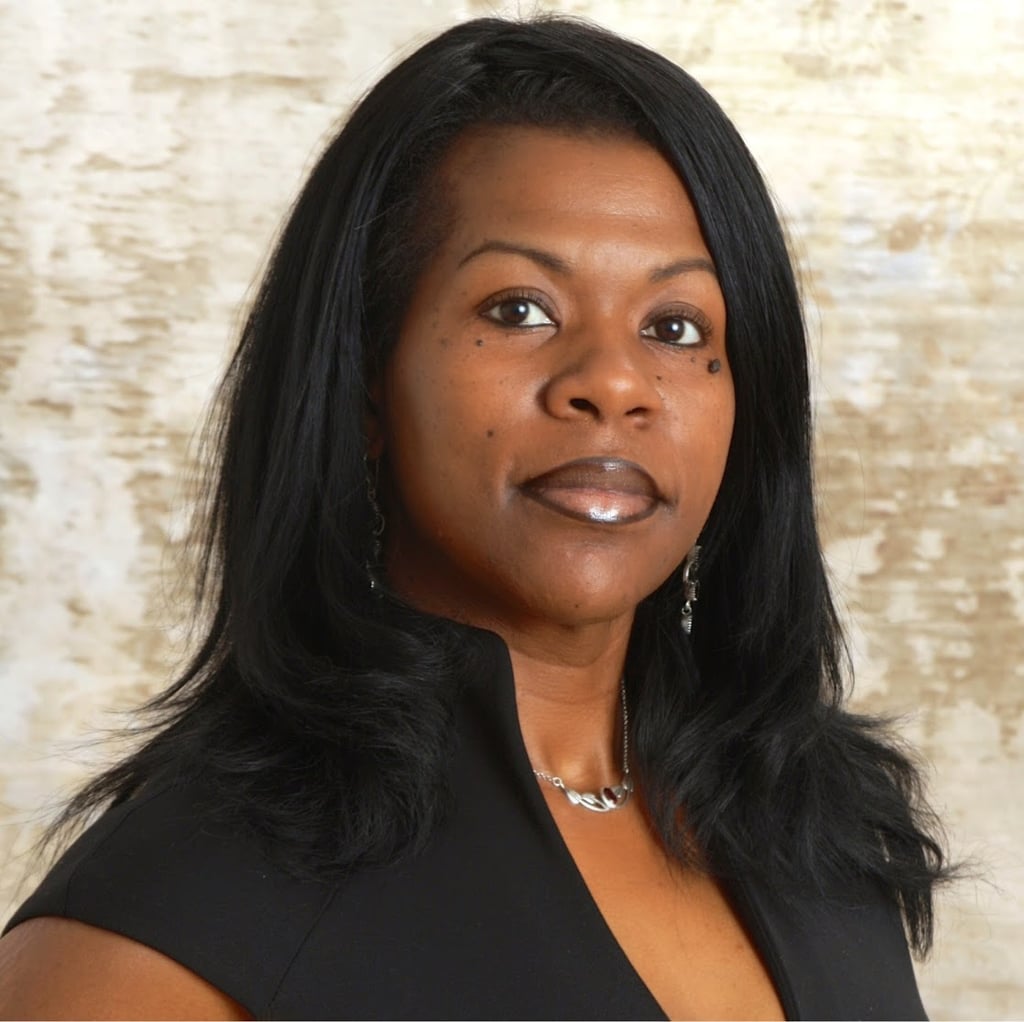
Image Source:
Courtsey of Dr. Jenkins
In just one conversation with Dr. Lakisha Jenkins, I learned more about cannabis's medicinal attributes than any research I've done online (and I consider myself fairly well-versed on the topic). Jenkins's passion for reeducating the public about marijuana's restorative properties is inspiring — and she considers it crucial to destigmatizing cannabis's somewhat negative image. Jenkins's entry into the cannabis industry was prompted by her daughter’s brain cancer diagnosis in 2002; she saw how traditional forms of medicine had failed and decided to research other forms of treatment. It ultimately led her to holistic medicine.
Sadly, Jenkins’s daughter passed away in 2006 after a four-year battle with brain cancer, but her legacy lives on through her mother’s work. Through the Kiona Foundation where Jenkins is CEO, she helps provide financial assistance for cancer survivors and offers holistic health services without charge. Jenkins also operates a holistic medicinal practice where she blends herbs (that sometimes include cannabis) to create alternative treatments for her patients. Cannabinoids are the active compound in cannabis, but they're also the primary source of the herb's medicinal value. "We have an endocannabinoid system in our bodies, which means we have an entire system in our bodies that's devoted to interacting with cannabinoids. We have over 300 cannabinoid receptors in our bodies," said Jenkins. "Even if we produce it naturally, we don't produce enough of it. Unless you're having a regular influx, it's likely you're suffering from some endocannabinoid deficiency."
Sadly, Jenkins’s daughter passed away in 2006 after a four-year battle with brain cancer, but her legacy lives on through her mother’s work. Through the Kiona Foundation where Jenkins is CEO, she helps provide financial assistance for cancer survivors and offers holistic health services without charge. Jenkins also operates a holistic medicinal practice where she blends herbs (that sometimes include cannabis) to create alternative treatments for her patients. Cannabinoids are the active compound in cannabis, but they're also the primary source of the herb's medicinal value. "We have an endocannabinoid system in our bodies, which means we have an entire system in our bodies that's devoted to interacting with cannabinoids. We have over 300 cannabinoid receptors in our bodies," said Jenkins. "Even if we produce it naturally, we don't produce enough of it. Unless you're having a regular influx, it's likely you're suffering from some endocannabinoid deficiency."
"This industry is literally built on medical refugees."
Cannabis, in Jenkins's view, is ultimately a therapeutic medicine and should be represented that way instead of as a vice. Women are vital in reshaping this image, Jenkins believes, echoing her peers. "I take an each one, teach one approach," Jenkins described how she counters critics. "I start with my children; as mothers, we're the keepers of health. We are going to have an influence over them. If you're educating them with the thought process that cannabis is a natural and traditional medicine, then it will be used as it's supposed to." This is the key to ending prohibition, Jenkins asserted. "It's going to take women raising up and educating themselves."
Speaking on the compassion that drives many people in the industry, Jenkins also emphasized how people have found cannabis to be a profound source of relief. "For the most part, people that dive into the cannabis industry have a vested interest because either they or someone that they love is experiencing a chronic, degenerative, or terminal illness," Jenkins explained. "So they are seeking this out as an alternative treatment." Cannabis is not just "something to do" for a lot of users, she reiterated. "This industry is literally built on medical refugees."
People from countries as far as Greece and Colombia have sought treatment from Jenkins's practice. It's easy to understand why: her expertise on cannabis is both eloquent and easy to understand. That's Jenkins's goal: "I try to find a way to educate everyone. I try to create advocates." Without a massive reeducation of cannabis to the public, its image will remain a pejorative one, she contended. "If you don't educate consumers to be a responsible steward of the privilege to use cannabis and that having access to medical cannabis is a privilege, then the negative stigma that's associated with cannabis will always remain."
Jenkins also occupies multiple roles in the budding industry: she was the founding member of the California Cannabis Industry Association, the affiliate of Lewis's effort at the National Cannabis Industry Association. Lewis and Jenkins have previously worked closely together — another indication of how close-knit women in the cannabis field are. As an activist, Jennings assisted in writing legislation that regulated medicinal sale of cannabis. It's a cause she's still passionate about, especially since she's an advocate for patient care. Her main concern is that the adult-use industry fails to consider the patient's needs fully. For example, if recreational use legalizes possessing only an ounce and a patient needs five pounds for a month's supply of cancer treatment, there's clearly a disconnect between legislation and needs.
People from countries as far as Greece and Colombia have sought treatment from Jenkins's practice. It's easy to understand why: her expertise on cannabis is both eloquent and easy to understand. That's Jenkins's goal: "I try to find a way to educate everyone. I try to create advocates." Without a massive reeducation of cannabis to the public, its image will remain a pejorative one, she contended. "If you don't educate consumers to be a responsible steward of the privilege to use cannabis and that having access to medical cannabis is a privilege, then the negative stigma that's associated with cannabis will always remain."
Jenkins also occupies multiple roles in the budding industry: she was the founding member of the California Cannabis Industry Association, the affiliate of Lewis's effort at the National Cannabis Industry Association. Lewis and Jenkins have previously worked closely together — another indication of how close-knit women in the cannabis field are. As an activist, Jennings assisted in writing legislation that regulated medicinal sale of cannabis. It's a cause she's still passionate about, especially since she's an advocate for patient care. Her main concern is that the adult-use industry fails to consider the patient's needs fully. For example, if recreational use legalizes possessing only an ounce and a patient needs five pounds for a month's supply of cancer treatment, there's clearly a disconnect between legislation and needs.
Susannah Grossman, founder of Verdant Communications and COO of Mountain Medicine

Image Source:
C. Rider Ramp
The War on Drugs, as spearheaded by President Richard Nixon, introduced a successful demonization campaign of cannabis, which still dictates how many Americans view the drug. Stereotypes about cannabis and its users have created quite the rebranding opportunity for public relation mavens. Enter Susannah Grossman, founder of Verdant Communications, a PR firm that specializes in media relations for cannabis products.
Grossman started her career working at an agency that specialized in hospitality PR; she represented world-renowned chefs and hotels but never felt fulfilled in her job. When she began researching the cannabis industry, inspired by her sisters’ involvement, she realized just how massive the opportunity was for her particular skill set. She’s also been a longtime consumer of medicinal marijuana because of its healing properties for people who have seizures.
“I noticed there was an opportunity to shift the conversation to a more educated perspective,” Grossman told me. “Not even just from a consumerist point of view but also people who represent the industry.”
Grossman started her career working at an agency that specialized in hospitality PR; she represented world-renowned chefs and hotels but never felt fulfilled in her job. When she began researching the cannabis industry, inspired by her sisters’ involvement, she realized just how massive the opportunity was for her particular skill set. She’s also been a longtime consumer of medicinal marijuana because of its healing properties for people who have seizures.
“I noticed there was an opportunity to shift the conversation to a more educated perspective,” Grossman told me. “Not even just from a consumerist point of view but also people who represent the industry.”
“It’s really about care, well-being, and a long-term fight to give people who are often very sick access to medicine.”
Following extensive research, Grossman moved from Boston to Denver at the end of 2014 with no real plan other than that she wanted to join the industry. After her sister organized a meeting at Women Grow with Jane West, Grossman got her start as an unpaid PR director of the organization. “It was an incredible foot in the door,” Grossman explained. “Through Women Grow, I connected with media who were looking for stories, and the stars aligned. It was my job to refer these women, but I also felt very proud and honored to be sharing their stories.”
By June of 2015, she was getting requests for work before she had even formed her company — “quite quickly, I had more work than I knew what to do with,” Grossman said. She also compares working for herself and working for an agency as “like night and day.” Working in an industry that’s being built from the ground up is especially empowering, she excitedly added.
By June of 2015, she was getting requests for work before she had even formed her company — “quite quickly, I had more work than I knew what to do with,” Grossman said. She also compares working for herself and working for an agency as “like night and day.” Working in an industry that’s being built from the ground up is especially empowering, she excitedly added.

Image Source:
Flickr user DonGoofy
Grossman echoed her peers' compassionate characterization of the industry. “I think there is something about the ability to empathize with others in the industry,” Grossman explained. “It’s really about care, well-being, and a long term fight to give people who are often very sick access to medicine.”
Because her ultimate goal is to normalize cannabis, Grossman's primary challenge is changing how the industry is covered. "I find it most frustrating when media look for a sensationalistic story," Grossman acknowledged. "I want to change people's minds. But there's a lot of work to do, after maybe 80 years of propaganda." Dissatisfaction with the misinformation and lack of education about cannabis was familiar to all of the women I spoke with.
She sees the cannabis industry’s future panning out like alcohol's, based on her previous experience working with wine and beer producers. It's that perspective that landed Grossman a job operating Women Grow PR when she first moved to Colorado from Boston in 2014. During our phone call, she reiterated what she told West as an elevator pitch for her skills. "I would predict [the industry] going more toward the beverage industry," Grossman explained. "There's a robust craft beer scene with the opportunity to enter the market as a small player, but also you've got pseudo-craft beers, and then you've got big guys. Maybe the big guys own a bunch of smaller brands; there's so many different brand identities and legal consumers. That's the closest analogue I could probably provide."
Grossman also works with Jamie Lewis in Denver, where she is the Chief Operating Officer of Mountain Medicines. They connected through their sprawling Women Grow network of entrepreneurs, which allows members to create partnerships and hold multiple positions in the cannabis industry.
Because her ultimate goal is to normalize cannabis, Grossman's primary challenge is changing how the industry is covered. "I find it most frustrating when media look for a sensationalistic story," Grossman acknowledged. "I want to change people's minds. But there's a lot of work to do, after maybe 80 years of propaganda." Dissatisfaction with the misinformation and lack of education about cannabis was familiar to all of the women I spoke with.
She sees the cannabis industry’s future panning out like alcohol's, based on her previous experience working with wine and beer producers. It's that perspective that landed Grossman a job operating Women Grow PR when she first moved to Colorado from Boston in 2014. During our phone call, she reiterated what she told West as an elevator pitch for her skills. "I would predict [the industry] going more toward the beverage industry," Grossman explained. "There's a robust craft beer scene with the opportunity to enter the market as a small player, but also you've got pseudo-craft beers, and then you've got big guys. Maybe the big guys own a bunch of smaller brands; there's so many different brand identities and legal consumers. That's the closest analogue I could probably provide."
Grossman also works with Jamie Lewis in Denver, where she is the Chief Operating Officer of Mountain Medicines. They connected through their sprawling Women Grow network of entrepreneurs, which allows members to create partnerships and hold multiple positions in the cannabis industry.
Amy Dilullo, VP of business development and sales at CMH Brands

Image Source:
Anthony Camera, Genifer M Jewelry
Amy Dilullo is another cannabis industry pioneer whose background is far from related to her present position at CMH brands — the Colorado licensee of Willie's Reserve (aka Willie Nelson's brand). Before she became an industry authority, Dilullo studied physiology and the behaviors of high-achieving athletes at Indiana University Bloomington. After a few years working on clinical studies, Dilullo started to question whether focusing on "the top 1 percent of human beings" was truly benefiting the majority.
"I never explored religion or sciences or spirituality in general," Dilullo told me before explaining how she found herself in Colorado. After leaving her graduate program in 2008, Dilullo lived and volunteered at a Buddhist center for a year. There, she met a grower in the then-emerging medicinal industry. Committing to the cannabis industry, Dilullo moved to Denver shortly after meeting him and started to work retail at dispensaries. From there, she worked her way up the corporate ladder; in a year she was the director of marketing and operations at a dispensary. "If you’re capable and driven, the sky's the limit in this industry," Dilullo said. "It’s developing and there are no rules written on what you can or can’t do yet."
Following a stint as director of the now-defunct Kush Magazine, Dilullo transitioned back into a product-based role, specifically with extraction, the process to create products like waxes or oils. "In the last three years, I have dabbled in the extract world," she said. "Both CO2 and hydrocarbon extraction, but my focus is on the money side: is there a demand for this new product that no one has? I make it sellable."
By 2015, Dilullo was consulting and representing various extractors. While attending the Women Grow Leadership Summit, she was introduced to directors at Willie's Reserve, the country icon's eponymous cannabis brand. She began consulting for Willie's Reserve after successfully pitching her extracting expertise. Her efforts were vital to the company's launch of edibles, pre-rolls, prepackaged flowers, and CO2 cartridges.
"There were ideas and there were business plans when I started," Dilullo said, describing her partnership with Willie's Reserve. "But to get there on the ground floor and start building something was a great experience. It has been empowering to learn and grow within that organization."
Having worked in the cannabis industry for nearly a decade, Dilullo has a unique perspective on every facet of its operations. Her insights and advice on everything from dealing with sexism to how to enter the industry are in the Q&A ahead.
"I never explored religion or sciences or spirituality in general," Dilullo told me before explaining how she found herself in Colorado. After leaving her graduate program in 2008, Dilullo lived and volunteered at a Buddhist center for a year. There, she met a grower in the then-emerging medicinal industry. Committing to the cannabis industry, Dilullo moved to Denver shortly after meeting him and started to work retail at dispensaries. From there, she worked her way up the corporate ladder; in a year she was the director of marketing and operations at a dispensary. "If you’re capable and driven, the sky's the limit in this industry," Dilullo said. "It’s developing and there are no rules written on what you can or can’t do yet."
Following a stint as director of the now-defunct Kush Magazine, Dilullo transitioned back into a product-based role, specifically with extraction, the process to create products like waxes or oils. "In the last three years, I have dabbled in the extract world," she said. "Both CO2 and hydrocarbon extraction, but my focus is on the money side: is there a demand for this new product that no one has? I make it sellable."
By 2015, Dilullo was consulting and representing various extractors. While attending the Women Grow Leadership Summit, she was introduced to directors at Willie's Reserve, the country icon's eponymous cannabis brand. She began consulting for Willie's Reserve after successfully pitching her extracting expertise. Her efforts were vital to the company's launch of edibles, pre-rolls, prepackaged flowers, and CO2 cartridges.
"There were ideas and there were business plans when I started," Dilullo said, describing her partnership with Willie's Reserve. "But to get there on the ground floor and start building something was a great experience. It has been empowering to learn and grow within that organization."
Having worked in the cannabis industry for nearly a decade, Dilullo has a unique perspective on every facet of its operations. Her insights and advice on everything from dealing with sexism to how to enter the industry are in the Q&A ahead.
PS: How do you address sexism in the cannabis industry?
AD: It’s definitely still a very frequent issue. Women are put in situations that men are never put into; it’s unfortunate that it happens. But, are you going to fold and let sexism succeed? No, you’re determined and you’re going to find a way to make it work. I wouldn't say that it's any more or less common [than in other industries], but I know it's prevalent. It's why women in this industry form tight bonds; there isn't as much rivalry or competition. We have a common obstacle that we often face. It's a safe space for us when we’re all together.
PS: Medicinal and recreational cannabis are cash industries. Can you talk about the financial difficulties of federal prohibition?
AD: Well, we can’t go to a bank and get a loan. But if you think about how this business is growing, the reality is that a majority of the funds coming into this industry are through private equity. There are layers to raising money with private equity, venture capitalists, or private hedge funds. It's a completely different dynamic than if I wanted to open a restaurant, and it's very difficult to get traditional funding. Though that's where you also see dynamic relationships coming together, between different markets and different brands. Some dispensaries have access to direct deposit with banks. Some have armored vehicles come pick up their cash. Most people have figured out some banking solution. It’s not as easy as taking it and dropping it off. We don’t get access to traditional business formats in taking revenue and measuring transactions either. However, it’s actually a common voice for the industry to gather around, even competitors.
AD: It’s definitely still a very frequent issue. Women are put in situations that men are never put into; it’s unfortunate that it happens. But, are you going to fold and let sexism succeed? No, you’re determined and you’re going to find a way to make it work. I wouldn't say that it's any more or less common [than in other industries], but I know it's prevalent. It's why women in this industry form tight bonds; there isn't as much rivalry or competition. We have a common obstacle that we often face. It's a safe space for us when we’re all together.
PS: Medicinal and recreational cannabis are cash industries. Can you talk about the financial difficulties of federal prohibition?
AD: Well, we can’t go to a bank and get a loan. But if you think about how this business is growing, the reality is that a majority of the funds coming into this industry are through private equity. There are layers to raising money with private equity, venture capitalists, or private hedge funds. It's a completely different dynamic than if I wanted to open a restaurant, and it's very difficult to get traditional funding. Though that's where you also see dynamic relationships coming together, between different markets and different brands. Some dispensaries have access to direct deposit with banks. Some have armored vehicles come pick up their cash. Most people have figured out some banking solution. It’s not as easy as taking it and dropping it off. We don’t get access to traditional business formats in taking revenue and measuring transactions either. However, it’s actually a common voice for the industry to gather around, even competitors.
"Women are put in situations that men are never put into; it’s unfortunate that it happens. But, are you gong to fold and let sexism succeed?"
PS: What do you think about Attorney General Jeff Sessions's threats against recreational marijuana?
AD: Everyone will tell you that I'm a calculated observer. A first impression can usually be right, but not if you’re given a skewed view or strategic messaging. I’m not positive the initial positioning that the administration has taken will be continued or if it's just something to initially set a tone. Maybe the administration has a different end game than we are interpreting. My goal in business is to always look at where the money is. When you look at the cannabis industry as a whole right now, the amount of federal and state taxes coming into each market, it makes no financial sense to shut down the industry. I’m looking at it from the revenue flow. I am also never one to panic. I watch things unfold, then make targeted decisions from there. Until something defining changes, it’s business as usual. You get thick skin working in this industry. There's a lot of risk inherently.
PS: What advice do you have for women hoping to work in the cannabis industry?
AD: If you're coming from another sector, inform yourself. Do as much research as you can on the plant and then the legislation on the part of the business you want to enter. Think of how your skill set aligns with a role in the industry. For example, if you’ve successfully managed a store, there is a perfect match in merchandising or operating a cannabis center. There's a lot of crossover. Just know the product. Begin informing yourself and networking. Good manners and a good smile open doors. Don't be afraid to connect.
AD: Everyone will tell you that I'm a calculated observer. A first impression can usually be right, but not if you’re given a skewed view or strategic messaging. I’m not positive the initial positioning that the administration has taken will be continued or if it's just something to initially set a tone. Maybe the administration has a different end game than we are interpreting. My goal in business is to always look at where the money is. When you look at the cannabis industry as a whole right now, the amount of federal and state taxes coming into each market, it makes no financial sense to shut down the industry. I’m looking at it from the revenue flow. I am also never one to panic. I watch things unfold, then make targeted decisions from there. Until something defining changes, it’s business as usual. You get thick skin working in this industry. There's a lot of risk inherently.
PS: What advice do you have for women hoping to work in the cannabis industry?
AD: If you're coming from another sector, inform yourself. Do as much research as you can on the plant and then the legislation on the part of the business you want to enter. Think of how your skill set aligns with a role in the industry. For example, if you’ve successfully managed a store, there is a perfect match in merchandising or operating a cannabis center. There's a lot of crossover. Just know the product. Begin informing yourself and networking. Good manners and a good smile open doors. Don't be afraid to connect.